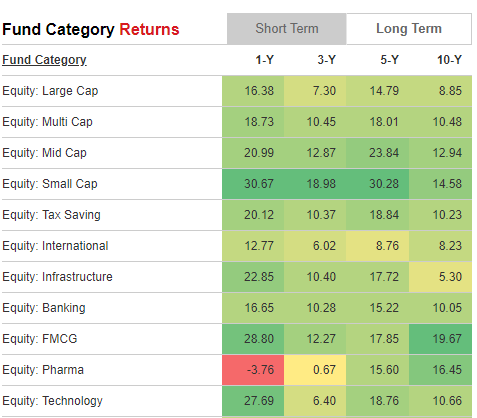Dear @us121 , I do not know if this is the best way to manage funds but I personally agree with you verbatim as I have done the same with my portfolio as well.
There are in fact 4 types of allocations I have done with different objectives and allocations (approximate based on current values):
Type 1 - Objective: Security/Taxes / Allocation: 9%
- Invested in life and health insurance (7%)
- PPF account (2%)
- Infrastructure bonds (very small portion)
Born and brought up in a middle-class family, I could never fully let go of the conservative values in managing finances. Hence, I decided to keep a small allocation of funds which can help me plan for extreme unforeseen contingencies. I understand insurance is more protection than investment but it helps in giving confidence for more risky ventures, hence in a way I call it an investment.
Type 2 - Objective: Living expenses / Allocation 14%
- Moderate-risk FDs (14%)
- Small rental income (from Real estate investments)
The interest from FDs suffices for my household expenses. Also, this helps me enjoy freedom to let go of my job, do things for motivations other than money, invest time in more beautiful things in life related to arts and spiritualism.
Type 3 - Objective: Wealth creation / Allocation 43%
I have a liking for investing in stocks. Over the years, as I have found more time to invest in analyzing stocks, the mix has been constantly shifting from MFs to direct equities.
Type 4 - Objective: For very long term requirements and for use of my descendants / Allocation 34%
- Real Estate (34%) (Does not include house in which I live)
I believe real estate is a limited and scarce resource in a country where the population density is so high. The space enough for me today, might not be enough for my future needs and for the needs of my children. When I had invested, the allocation was small but, state capital where I reside developed faster than I expected, giving me very good price appreciation. However, I am in no mood at the moment to cash out and would like the assets to be there for my children who are not yet born. 
Initial years of slogging is important to build a corpus if someone is starting to build a portfolio. Financial freedom was always the objective in my slogging years. Now I feel I am free but I may be wrong. Hence I would like to invite contrary views to help me identify loop holes, if any, to fine tune my allocations further.


